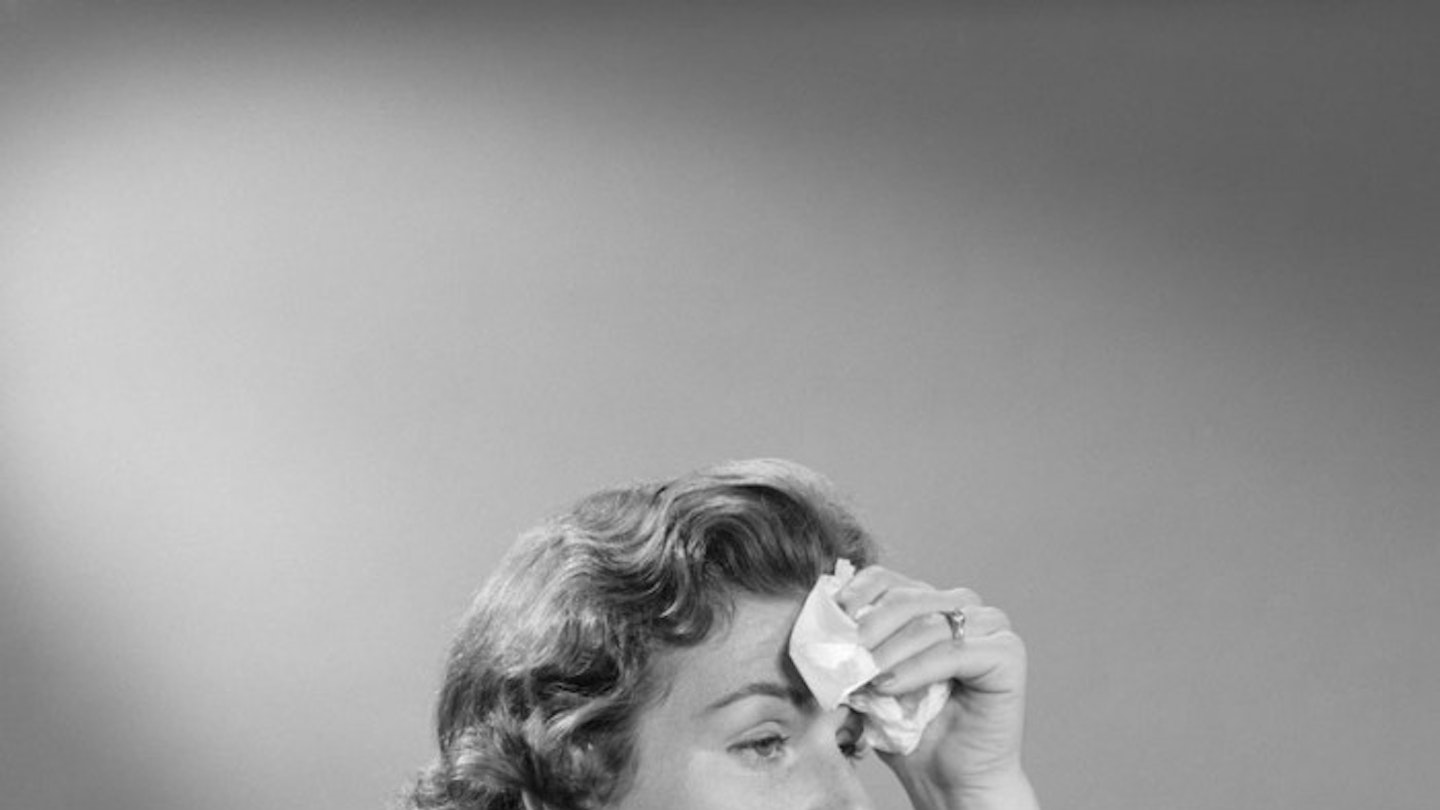Last week a powerful businesswoman dismissed other women as ‘too sensitive’ for the workplace, Grazia’s Lucy Vine says she’s getting her euphemisms wrong...
Sometimes the world is a disappointing, depressing place, and celebrity cook, Annabel Karmel sure proved that earlier this week. At the Cheltenham Literature Festival – which presumably included an audience who might’ve actually taken her comments seriously – the successful business owner branded women too ‘sensitive’ to cope with work. She said, ‘I think there are some jobs that women can’t do as well as men. […] I think we are sometimes more sensitive than men.’ Karmel went on to say she’d even told her daughter not to go into the same profession as her son, who is an oil and gas trader, because, ‘she’s too sensitive.’
Putting aside how hopelessly miserable it is that we’re still living in a world where women are happy to tear down other women and perpetuate total dumb-dumb stereotypes, here’s the thing: since when is ‘sensitive’ a bad thing? Being sensitive means you’re quick to detect signals or changes. It means you’re good at interpreting and appreciating other people’s feelings. How would those things make someone a bad colleague or boss?
But that’s not what Karmel’s trying to say, is it? She’s using ‘sensitive’ as a euphemism to imply that women tend to fall apart under pressure and cry a lot. But that’s not right either. A recent study from mental health charity Mind, found that four fifths of 18-34 year olds force themselves to put on a brave face when they’re feeling anxious, and a quarter felt that showing emotions is a sign of weakness. And actually Mind says we should be crying more, because it’s vital for our wellbeing. But whether women cry or don’t cry, it’s not affecting our work. Women officially make fantastic employees. We work harder and longer than men do. We don’t get distracted as easily and we’re not as prone to skiving off. Sorry guys.
In my opinion – and nobody freak out here – we make better bosses too. I’m saying that as someone who’s worked for both men and women, but I’m also saying that as Grazia’s Acting Features Director who therefore reads a lot about new studies. And several studies find that women make more considerate, more thoughtful and more encouraging bosses. A recent survey in America found that 33% of employees working for women are more engaged on the job, compared to only 27% who work for men. Companies with highly engaged workers tend to outperform their competition by 147% and have lower employee turnover. So that’s something to consider.
'Women are more than yoghurt adverts and bubble baths and periods.'
But it’s attitudes like Karmel’s that mean young women aren’t pushing themselves to the top. A study last week by EDF energy (remember how I like studies?) found that a third of girls at school don’t feel clever enough for careers like engineering or work in science. That’s despite girls leading the way in grades for those areas and many of them saying that science is among their favourite subjects.
It makes me so sad and so mad. Women are more than yoghurt adverts and bubble baths and periods. We deserve the same opportunities at work and we need successful women like Annabel Karmel telling other women and young girls who like science to push themselves. To go for it. Because they can do anything whether they’re sensitive or not.
And if you’re reading this, Karmel’s daughter, I think you should go for that oil and gas trader job. Even though I don’t know what that is.
